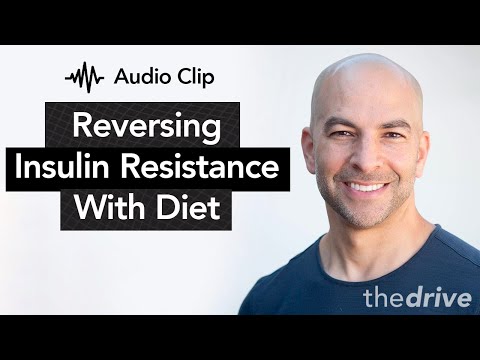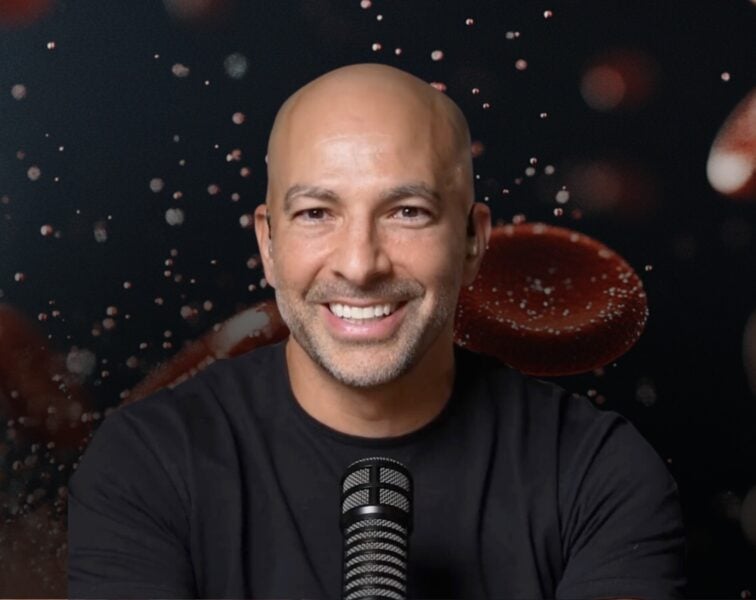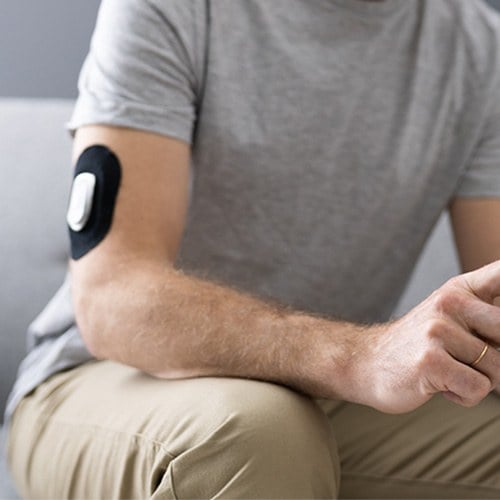This clip is from “Ask Me Anything” (AMA) episode #17, originally released on November 9, 2020.
If you’re a member, you can now listen to this full episode on your private RSS feed or on our website. If you are not a member, learn more about the how to become a member and the benefits here.

Show Notes
Ways to reverse insulin resistance
Insulin resistance can be combated with all 5 tools in the toolkit:
- 1) Pharmacologic agents
- 2) stress/cortisol management
- 3) sleep strategies
- 4) exercise, and
- 5) nutrition
5. Nutrition
- By definition, insulin resistance is a carbohydrate tolerance disorder
- Any doctor who is clinically taking care of patients will say insulin resistance patients generally respond better to carbohydrate restriction than any other form of restriction
- They respond very well to calorie restriction by definition typically includes carbohydrate restriction
- It doesn’t have to be a ketogenic diet
- Rather tell everyone to stay under XXX amount of carbs, Peter sets a standard in terms of average blood glucose and a standard deviation from that average
- Peter uses a Dexcom CGM to monitor this (see podcast episode with Kevin Sayer, CEO of Dexcom)
“As those numbers start to come down and the insulin starts to come down and all these other things start to go, that’s exactly what reversibility looks like.”



